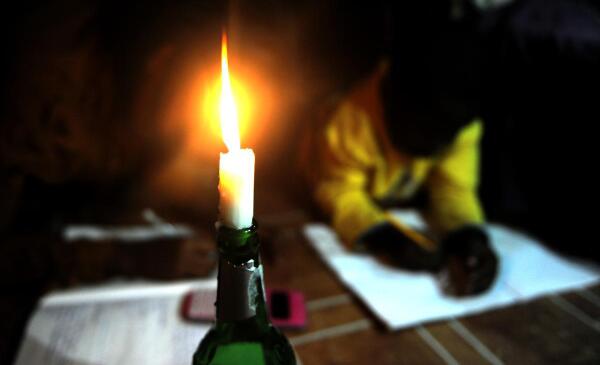Stage 6 load shedding is back and we are once again scrambling to charge our devices and find alternative sources of power.
STAGE 6 load shedding is back and we are once again scrambling to charge our devices and find alternative sources of power.
Eskom announced its implementation of Stage 4 load shedding on Wednesday morning, before ramping up to Stage 6 at around midday.
The power utility said this was due to a high number of breakdowns since midnight, as well as the requirement to strictly preserve the remaining emergency generation reserves.
Eskom said that Stage 6 power cuts, which were last implemented in September, would be in effect until further notice.
The power utility’s chief operating officer Jan Oberholzer, has previously warned it was “critically important” to balance emergency resources to avoid a worse situation.
What is Stage 6 load shedding and how will it affect us?
Stage 6 load shedding means shedding 6,000 MW. Stage 6 doubles the frequency of Stage 3. This means you could be affected 18 times for four days for up to four-and-a-half hours at a time. Some South Africans can also expect load shedding 18 times over eight days for about two hours at a time.
Are there any alternatives that can help you get through load shedding?
Candles
Candles are our original go-to for load shedding. You can find a pack of six candles for about R20 or just over R200 for a pack of 36, depending on your needs.
Solar lights
As the sun will be around for the next few billion years or so, solar might be another way to go. Solar lights harvest and absorb the sun’s power, giving you much-needed light. Solar lights cost about R300.
Gas stoves
When load shedding first hit in 2008, many South Africans rushed to buy gas stoves (the portable camping ones, not the ridiculously expensive ones). If you don’t have one, it would be useful to buy one. Expect to spend from about R500 for a small gas stove.
UPS
A UPS (uninterrupted power supply) will come in handy if you find yourself in need of internet connection when the power goes off. You can expect to spend from about R1,500 for a decent UPS.
Small portable generators
Generators are expensive but it is worth getting if you are able to afford it. A small generator can cost you about R2,000 and they can go up to about R10,000, depending on the size and the wattage value.








